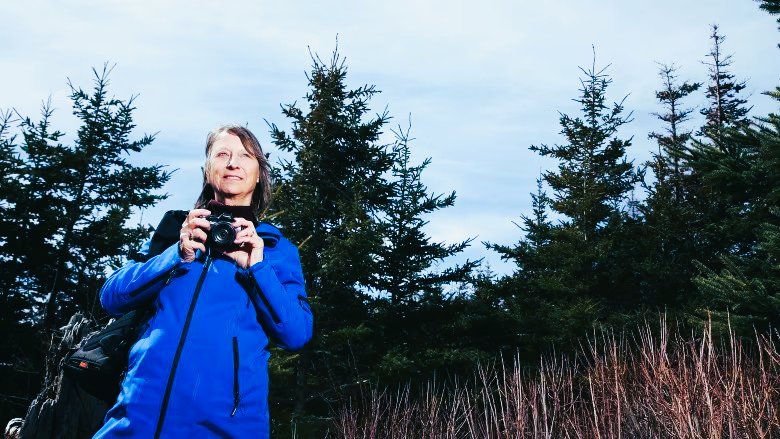
Welcome to the Mi’kmaw Native Friendship Centre’s Archives
We are thrilled to share the Mi’kmaw Native Friendship Centre’s Archives. that will help share the history of the Mi’kmaq people in Mi’kma’ki. Our goal is to share the often overlooked stories of our culture, passed down through oral traditions like stories, songs, and dances. These archives allow everyone to hear our language and songs, see our dances, and learn directly from those who have always lived here.
Researcher Profile: Dr. Trudy Sable
Dr. Trudy Sable is the Director of the Office of Aboriginal and Northern Research at the Gorsebrook Research Institute, Saint Mary’s University, and an Adjunct Professor of Anthropology. For more than three decades, she has worked collaboratively with Mi’kmaq, Innu, and Inuit communities across Atlantic Canada and beyond, building lasting partnerships grounded in respect, shared knowledge, and cultural continuity.
Since the late 1980s, Dr. Sable has conducted extensive interviews with Mi’kmaq Elders, leaders, and community members, helping to document oral histories, traditional knowledge, and cultural perspectives that are now preserved within our archives. Her community-based research focuses on intergenerational learning, place-based education, and the integration of Indigenous Knowledge with Western science and the arts.
At Saint Mary’s University, Dr. Sable represents the institution on the University of the Arctic and the Atlantic Association of Universities Working Committee on Aboriginal Issues. She currently co-leads Pjila’si Mi’kma’ki: The Mi’kmaw Place Names Digital Atlas and Website Project, developed in partnership with Dr. Bernie Francis and representatives of Mi’kmaw First Nations.
Beyond her academic and research leadership, Dr. Sable is also a mindfulness educator and intercultural research consultant whose work emphasizes reflection, creativity, and connection to place. She is co-author of The Language of this Land, Mi’kma’ki and co-editor of the Journal of Contemplative Inquiry (JOCI).
Dr. Sable’s ongoing work continues to support the preservation and celebration of Indigenous voices, histories, and ways of knowing - ensuring they remain central to both academic inquiry and community storytelling.
At our Friendship Centre in Kjipuktuk, we welcome stories from various Indigenous peoples. When Dr. Trudy Sable and I first talked about donating her collection to start our archives, we realized there was a chance to include much more. Many people have collections of photos, letters, documents, and oral histories that we want to archive with your permission and following ethical guidelines. Every item, even if it seems small, helps complete a bigger story, like a missing puzzle piece.
This website has contacts for discussing donations to the archives and the steps for making them. We aim to make this valuable resource available to our communities and the world.
- Pam Glode-Desrochers, Executive Director
Overview on Terms of Use
All of the interviews offered in this collection are approved to be shared by the individual interviewee or surviving family members. Each recording and transcript include information regarding how to cite the material, as well as information about the person, place, project, date, and resulting publication or resource if any. Some supplemental material, such as biographies, Mi’kmaw translations of terms and text, and pictures, are included with hopes of adding more in the coming years. Special thanks to Kenny Prosper and Bernie Francis for their support and their translations of terms and text into the Smith/Francis orthography.
Since a great deal of time and effort has gone into this project with more to come, we would like to make the following request regarding its Terms of Use:
1. Our primary objective is to make this material available to Mi’kmaw community members and organizations for use in whatever ways would further the knowledge of their history and culture and promote the wellbeing of future generations.
2. For researchers and educators not of Mi’kmaw descent, and who are interested in the use of any of this material for non-commercial or not-for-profit purposes, we would like to request you contact us with the intended uses and outcomes for your research or project by filling out the attached short form. This helps us (the MNFC and its Board of Directors) to understand the benefits of your research.
3. If the material is being used for commercial publications, films, on-line materials, or other data gathering or generating uses, we ask to be contacted directly for permission. We may request a fee be paid for its use. The fee will be invested in a youth capacity fund to support Mi’kmaw youth training in research and archival skills development.
Whatever the use of the material, donations to the MNFC are welcome to support our ongoing work.
*See below for contact information

